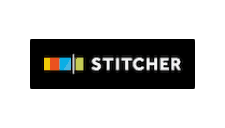Listen to Episode 40
Bonus: Watch the spotlight version of this episode on YouTube!
Full Show Notes
Ben talks about the outstanding school infrastructure at SAS that enables his amazing coaching team to innovate and closely support teacher and student learning. The connections between departmental structures within the school, and school-wide professional learning practice demonstrates, how powerful school infrastructure can be in the success of a coaching program!
School Background
Structure is: 1 coordinator in ES plus 3 tech coaches (K-1, 2-3, 4-5) – aligned with librarians and other coaches (as part of other structures in the school). One coach is now design thinking specialist, another one is focused on data and supporting systems, and the third is a more “traditional tech coach” good with devices. Great spread of talent on the team.
Building Rapport in your teaching community:
What are your routines (walking the hall, eating lunch in the staff room) “The Coaching Bank” – how do you make connections with colleagues on a professional level, not just a personal one?
Being visible, making the center of what we do about the kids, being ambitious about our goals for success for the kids. Often coaching roles are misinterpreted, great clarity around the success of students and working hard to achieve it. Building relationships – talking about things that aren’t about your role, more about personal connections. Being available, being there.
It’s very difficult at SAS because of the scale, it was easier in a smaller school. Doing “drive-bys”, stopping by classrooms before school. Attend PLCs (coaches are aligned with grade levels, Ben is aligned with specialists). Making time in his schedule to attend these meetings and share in that work.
Building a Culture of Coaching: Where/How do you start? Being an advocate for the importance of your role
2 levels: Note: It’s all a work in progress, realized that having 3 people can be overwhelming for the teachers, so re-evaluated that and tried a new model.
Professional Learning: a great relationship builder, there’s watercooler learning going on during PD that allows for sidebar conversations that can lead to collaboration. The key is for teachers not to be dealing with their own problems in an isolated way.
Being available for kids, in their own personal learning. Kids come in on their own to the tech office asking questions and then spread that support around the school. Past focus has been on iPads and successful rollout of a very large scale 1:1 program. Thinking process has evolved to thinking about technology “beyond the screen”. MakerSpaces have become much more popular and has shifted the dynamic of the office, starting to redefine relationship with kids.
All hinged on having the support from the leadership team, and having such a great team at the school made this a success.
Staying motivated as a coach when you’re “the only one” who cares about tech rich learning
The most difficult part is not the pace (kids are often running faster than we are, when I feel like I’m going to fast, I have to remember that the kids are moving faster). Motivation is tough when the mission of the tech team is not aligning with the mission and vision of the school. Need to be very clear about what your priorities are and not get distracted and lose focus. Stay focused and be patient. If school community is not on board, it could be a great opportunity to be a learner. Usually the things you get frustrated by, end up coming to fruition anyway. Being willing to take the time to invest in building the understanding of school vision and being clear about intent.
How do you manage the challenge of being “understood” as a coach – (when teachers don’t know what you do / think you just have free time)
Keep communicating and recognize where it’s gaining traction and where it’s not. You can invest a lot in a strategy and it doesn’t work (like building a website, but teachers don’t go). That strategy might not be best for your context. Need to constantly be honest in your own appraisal and seeking feedback about why particular strategies are working or not. Invest more in yourself with people who you aren’t getting traction with.
Track which classrooms we’re going into and who we’re having conversations with. Asking, “do I know this person?”, if I don’t, that’s a problem. Find an opportunity to have a conversation – try to take a seat at a new table at a PD or lunch.
What are your thoughts on the many hats of coaching: coach, consultant, co-teacher, etc?
Put people first. “Back office tasks” are not more important than the people I work with. Being clear that that is the most important thing. Planning out patterns over the course of the year (student placement, reporting) so they don’t consume you.
What does data look like from coaching? What are you using to help motivate teachers to make improvements/changes? Assessing tech & tech integration, how do you give it value (teacher evaluation, teacher growth): “More Than Ticking the Box”?
We’re not great at this. Tried lots of things. SMART goal for this year is to work collaboratively with all grade level teams to develop one performance task that is interdisciplinary and is of personal significance of each child.
Data collecting: what work are kids doing, is it meaningful? Which classrooms and PLCs and mini-PLCs are we working with? A little bit of a counting exercise. What kids are producing that we have supported? How do we make it better and more equitable? What are the implications of alignment of our curriculum? Using YouCanBookMe to track teacher bookings – that was not particularly informative.
What are ways that you make yourself invaluable as a coach? What are the things that teachers love that you do?
We offer timely professional learning in areas that inspire them that they want to learn more about. They have 15 weeks of the school to offer PD and 4 or 5 repeats of a particular session are offered in each of those weeks (before or after school and sometimes during the day). Have had a lot of PD on Google, but ES is iPad, so they’re offering a course aligned around the Apple Teacher program. Another course on Digital Citizenship, looking at units of work to find opportunities to meaningfully embed digital citizenship. Hit Digital Citizenship week and start of year hard, now trying to embed into the curriculum. Once or twice a year, roll in grad credit too. Deliberately keep groups small. Plan out some, and let some bubble up organically. Pretty casual structure. Technology has found it’s place, now we’re focusing on true integration, transdisciplinary learning.
Where do coaches fail? And what can we do about it?
When we focus on ourselves and our role and its importance. When we start to collect projects that become your “pets” – sometimes you have to sit back and “is this really my job? Is this the most important thing I should be doing this week?” Your job can become cluttered with these things, and can let you lose your way, you become compromised. When you lose focus of your real central mission and refuse to let go of what you enjoy. Then you need to invest time to get out of this pet project. Each year recalibrate.
When you’re not building someone’s capacity to do something themselves. Repeating the same project with the same teacher every year.
Tips for getting started as a coach in a new school
Get to know everyone, come to all the social events, be in as many classrooms as you can, be in every PD opportunity and be contributing. Show your worth, but without being over the top. Do the things a good coach does, and do it right away. Getting the right personality in the school. Don’t wait to be brought into the fold, you were hired for a reason, show us what that was and do it on day 1.
What’s one resource you would recommend and why was it impactful for your practice?
Flipboard. It enables you to consume any where you are, aligns with all different interests, don’t have to make time for professional reading, it’s woven into broader reading which makes it easy to do. You can curate and collect the resources that matter. Team has a shared flipboard that acts as prompts, sometimes scheduled into meeting time. Informal, and keeps conversation current. Keeps his finger on the pulse.
JOIN OUR MAILING LIST
Sign up for our #coachbetter mailing list to receive a newsletter every other week all about coaching in a school context. Each FREE newsletter features one of our relevant coaching videos, a practical coaching tip you can use right away, plus a great resource created or selected by the Eduro Team to help you #coachbetter!
CLICK HERE
#COACHBETTER ON FACEBOOK
Connect with other coaches, just like you, in our free #coachbetter Facebook group:
CLICK HERE
EVEN MORE COACHING RESOURCES
See all of our Eduro Learning coaching resources!
CLICK HERE
If there’s something you’re interested in, and we don’t have it, let us know!
PRIVATE MENTORING
Or if you want to see what the private mentorship experience is like, check out our Private Coaching sessions – and get your first coaching session for free – here:
CLICK HERE
ABOUT #COACHBETTER
We’re passionate about the impact instructional coaching can have on school culture, student learning and teacher professional growth. This podcast allows us to share inspiring ideas about coaching through conversations with innovative educators from around the world. Let us help you #coachbetter! We would love to hear your thoughts, ideas and questions so please drop us a comment below!
The Coach Certificate & Mentorship Program
An academic year of professional learning designed by coaches, for coaches!Do you want to feel more confident and inspired in your role as a coach?
We love sharing great content!
Get authentic, relevant, practical content delivered right to your inbox!
Connect with Us







